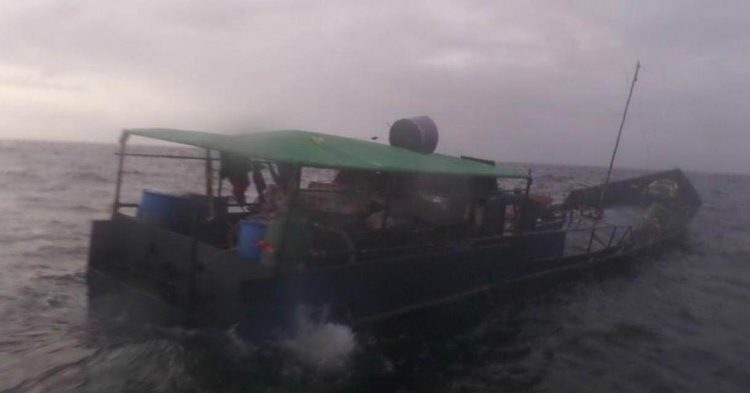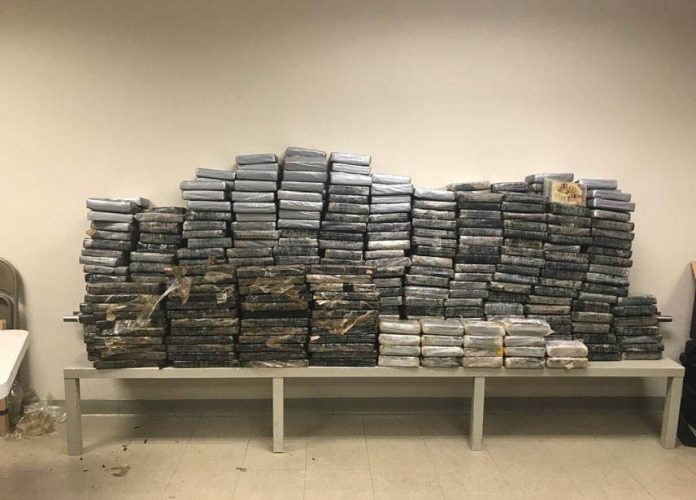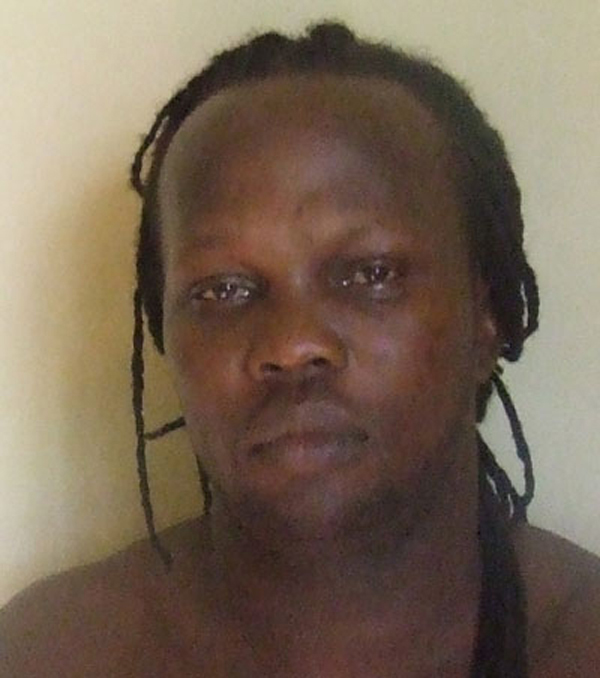Referring to Tower Suites co-owner Shervington ‘Big Head’ Lovell as a “a sophisticated international drug trafficker” the US Government has asked that he be sentenced to between 17 and 21 years in prison as he invested some US$100,000 to traffic in more than one tonne of cocaine from South America to Europe.
“The defendant is a large-scale international narcotics trafficker who led a conspiracy to ship enormous quantities of deadly drugs across an ocean for distribution in Europe and elsewhere. The defendant, and the other leaders of this conspiracy, endangered the crew members’ lives to transport narcotics that would endanger even more lives once distributed. The defendant does not meaningfully dispute that he did all of this for his own monetary gain. The defendant makes no meaningful attempt to justify his actions, in spite of his obvious assets and advantages in life,” United States Attorney Audrey Strauss said in a 10-page submission to US Judge Paul G. Gardephe.
The attorney for Lovell has asked not only for the judge to be lenient with his client but for him to serve his time at Fort Dix Federal Correctional Facility in New Jersey to afford him the opportunity to pursue vocational training in horticulture.

Strauss, however, requested that the judge sentence the Guyanese man to between 210 months (17 years five months) and 262 months (21 years, 8 months) as she said this would be fair and appropriate, and sufficient but not greater than necessary, to serve the legitimate purposes of the sentencing in the case.
While Lovell’s lawyer, Eon Smith hinted at him being sentenced to the mandatory minimum term of 120 months (10 years), Strauss argued that this is not legally permissible and would be in breach of the parties’ plea agreement. However, she said based on conversations with Smith it does not seem as if Lovell will persist with this request but if he does the government submits that the court should find “the defendant has breached the plea agreement and the Government may request further relief”.

Lovell, who has been in a US jail since 2018, pleaded guilty to count seven of his drug trafficking indictment last November before Justice Gardephe, who is due to hand down a sentence on May 20.
Background
Giving the background to the case, Strauss noted that the charges stemmed from a Drug Enforcement Administration (DEA) investigation into large scale-cocaine trafficking activities in South America, Africa, Europe, the United States, and elsewhere. The district attorney said that in 2018, over the course of several months, Lovell and his co-conspirators plotted to ship more than 1,200 kilogrammes of cocaine on a stateless vessel to the Netherlands. During meetings in various locations in South America and the Caribbean, as well as encrypted communications, the conspirators—including Lovell’s co-defendants Steven Antonius, Argemiro Zapata-Castro, and David Cardona-Cardona—met with DEA confidential sources (CSes) and discussed how to transport the cocaine.

According to the submission, initially, at a meeting which occurred on or about April 18, 2018, Lovell, Antonius, Zapata-Castro, another co-conspirator, and the CSes met at a hotel in Georgetown, Guyana, to discuss a potential cocaine shipment. In particular, the parties discussed shipping approximately 400 kilogrammes of cocaine to the Netherlands. During that meeting, Lovell stated that he was looking for a way to retrieve his earnings after the cocaine was sold in the Netherlands.
He noted that although he had laundered money from the United States and Canada in the past, he had no such experience from the Netherlands. By June 5, 2018, at a meeting in Montego Bay, Jamaica, Cardona-Cardona joined the group, and a plan was struck to combine a cocaine shipment Cardona-Cardona was planning with the CSes and a cocaine shipment provided in part by Lovell.
“At that meeting, Lovell and Antonius agreed to provide approximately 600 kilogrammes of cocaine from South America on a boat supplied by Zapata-Castro. The vessel would then meet another boat, which was transporting an additional 600 kilogrammes of cocaine provided by Cardona-Cardona and the Cses, at coordinates that Antonius picked, transfer that quantity of cocaine onto the vessel, and then continue toward the Azores Islands,” Strauss described.
The plan was that once the vessel had reached a location off the coast of the Azores Islands, it would then meet a third boat. Antonius would help supply that third boat, which would be disguised as a fishing vessel and would have the capacity to hide approximately 2,000 kilogrammes of cocaine. Antonius’ boat would then transport the combined shipment of cocaine—totaling more than 1,200 kilogrammes—to a location in the Netherlands.
Once the plan was settled, Lovell then helped set things in motion. He and Antonius helped finance the purchase of more than 600 kilogrammes of cocaine and agreed, along with Zapata-Castro and Antonius, to provide portions of the transportation expenses, which were estimated at approximately US$400,000. At a meeting which he attended on or about July 5, 2018, Lovell stated that he already had personally invested approximately US$100,000 toward these costs. It was on July 27, 2018, the US Coast Guard spotted the vessel which displayed no indicia of nationality—approximately 350 nautical miles east of Diamond Valley, Barbados.
Coast Guard personnel subsequently boarded the vessel. Defendant Godofredo Leandro Gonzalez informed Coast Guard personnel that he was the master of the vessel, that the vessel was without a nationality, and that the purpose of its voyage was drug trafficking. The Coast Guard found approximately 624 kilogrammes of cocaine, wrapped in large bundles, below mattresses laid across wooden planks on the vessel. They also recovered on the vessel a magazine containing 30 rounds of ammunition.
Lovell was then arrested in Kingston, Jamaica on October 25, 2018 and taken the Southern District of New York on or about November 30, 2018.
Extremely serious
In arguing for the sentence of 17 to 21 years, the district attorney argued that Lovell’s “conduct was extremely serious”.
“He played a crucial role in transporting a massive quantity of cocaine across international waters, organizing his co-conspirators and their plans to ship narcotics, and coordinating the logistics of that shipment, including by financing more than 600 kilogrammes of cocaine and paying significant sums of money for transportation expenses,” she said of Lovell.
She noted as well that Lovell’s prior money laundering activities, coupled with his access to others capable of manufacturing hundreds of kilogrammes of cocaine, illustrates familiarity and experience with international drug trafficking.
“Simply put, the cocaine producers either had a preexisting relationship with Lovell and Antonius, or together they had the upfront resources to secure 624 kilogrammes of cocaine for the shipment,” Strauss pointed out.
It was revealed that to date, the Court has sentenced five of the defendants in the case all of whom were on the vessel and responsible for transporting the cocaine. The longest sentence imposed was five years each for defendants Luis Rafael Febres Monasterio, Godofredo Leandro Gonzalez, and Omar Torres. According to Strauss the Court acknowledged that it was imposing below-guidelines sentences for those defendants in part to account for the extreme risks that they faced while on the vessel. The Court noted, for example, that “the [V]essel was not seaworthy; there were no life preservers or lifeboats. The ship sat very low in the water, such that the sea waters washed over the sides in any minor squall, and it was necessary to bail to keep the vessel from sinking”.
The Court has also sentenced Steven Antonius, who Strauss said was Lovell’s closest partner in the conspiracy. Antonius was sentenced to 12 years.
In sentencing Antonius, the Court noted that Antonius, who like Lovell helped to finance and organise the use of the vessel itself, was ultimately responsible for the conditions on the vessel which endangered the other co-conspirators.
“Like Antonius, Lovell is among the most culpable in this conspiracy, and should also be held responsible for those conditions,” it was argued.
Strauss further submitted that a significant sentence is also appropriate to send a message to individuals, like Lovell, who play leadership roles in trafficking massive quantities of dangerous drugs across the ocean, that they will face appropriately severe consequences when caught—that a trafficker’s participation in fueling the international drug trade, which leads to pain and addictions and devastation in communities in countries around the world, will not be tolerated.
‘Family suffering’
Meanwhile, in response to submissions from Lovell’s family Strauss argued that their suffering is entirely of the defendant’s own making. She pointed out that although the defence claims that because of his arrest and prosecution in this case he has “learned that his action does not only impact him but every member of his family,” a 50-year-old father of eight should long ago have learned that lesson.
And it was noted as well that Lovell and his family have evidently experienced none of the economic privation cited, for example, by the six vessel crew members.
She said that the probation report mentions that Lovell’s partner works at “her family’s hotel.” And while there is no discussion of Lovell’s connections to the hotel business in that report, Strauss noted that local reporting in Guyana indicates that he in fact has, through his mining company, invested in at least two hotels, at a cost of several million dollars each (in U.S. dollars). Links to articles published in this newspaper were provided.
“In spite of his lawful economic opportunities—the defendant’s family mining operation, history of employment, and possible investments—he chose to abandon that path and pursue income as an international drug trafficker,” the district attorney said.
She added that Lovell’s background demonstrates that significant penalties are needed to achieve just punishment for his conduct and to afford adequate deterrence to those, like the defendant, who have a choice between lawful employment and trafficking narcotics.
“Whatever the defendant’s financial situation, he of course had the means to purchase significant quantities of cocaine, employ a ship, and pay more than a hundred thousand dollars toward transportation and supply expenses. The defendant had remarkable means at his disposal, which he ultimately put toward a drug trafficking plot,” she further said.






